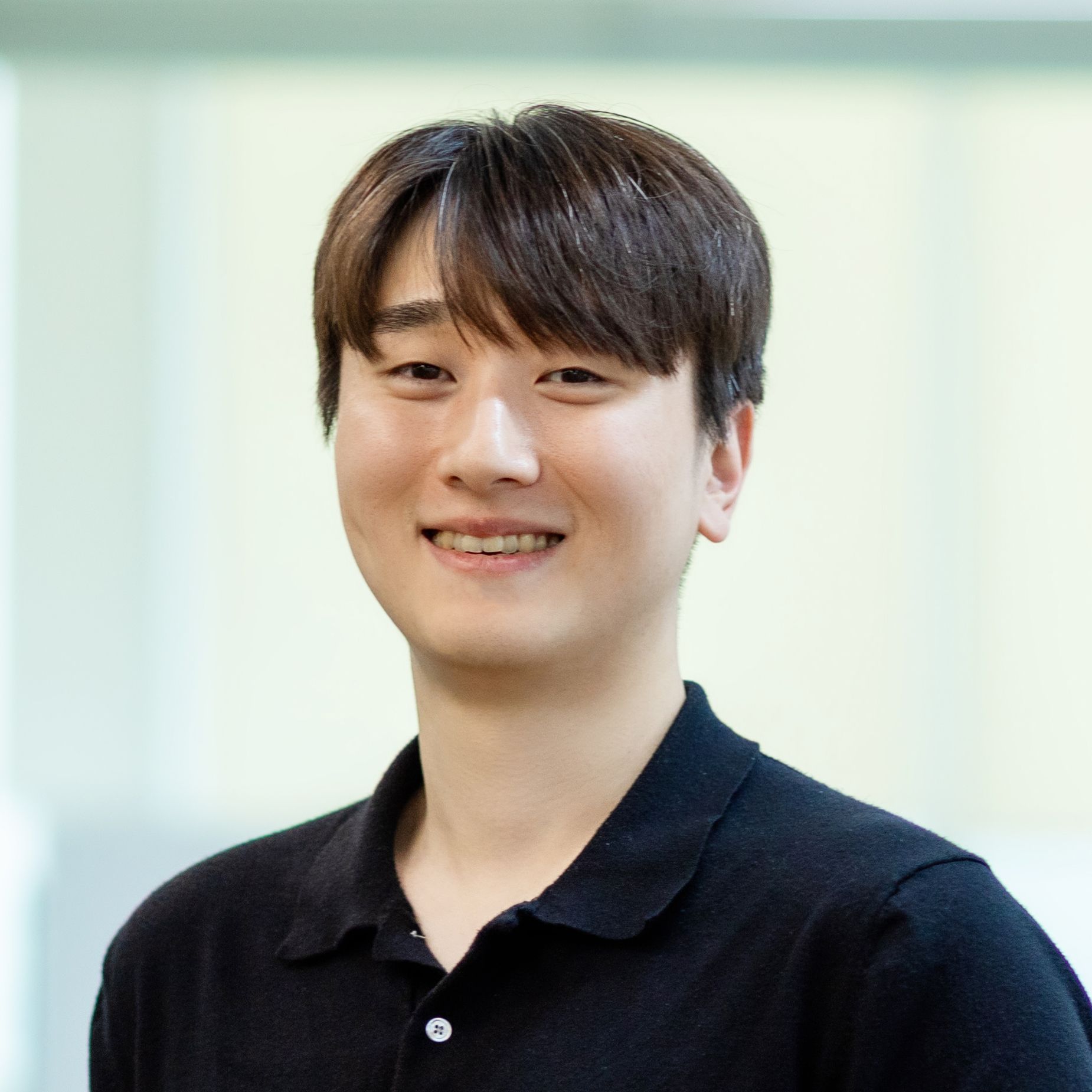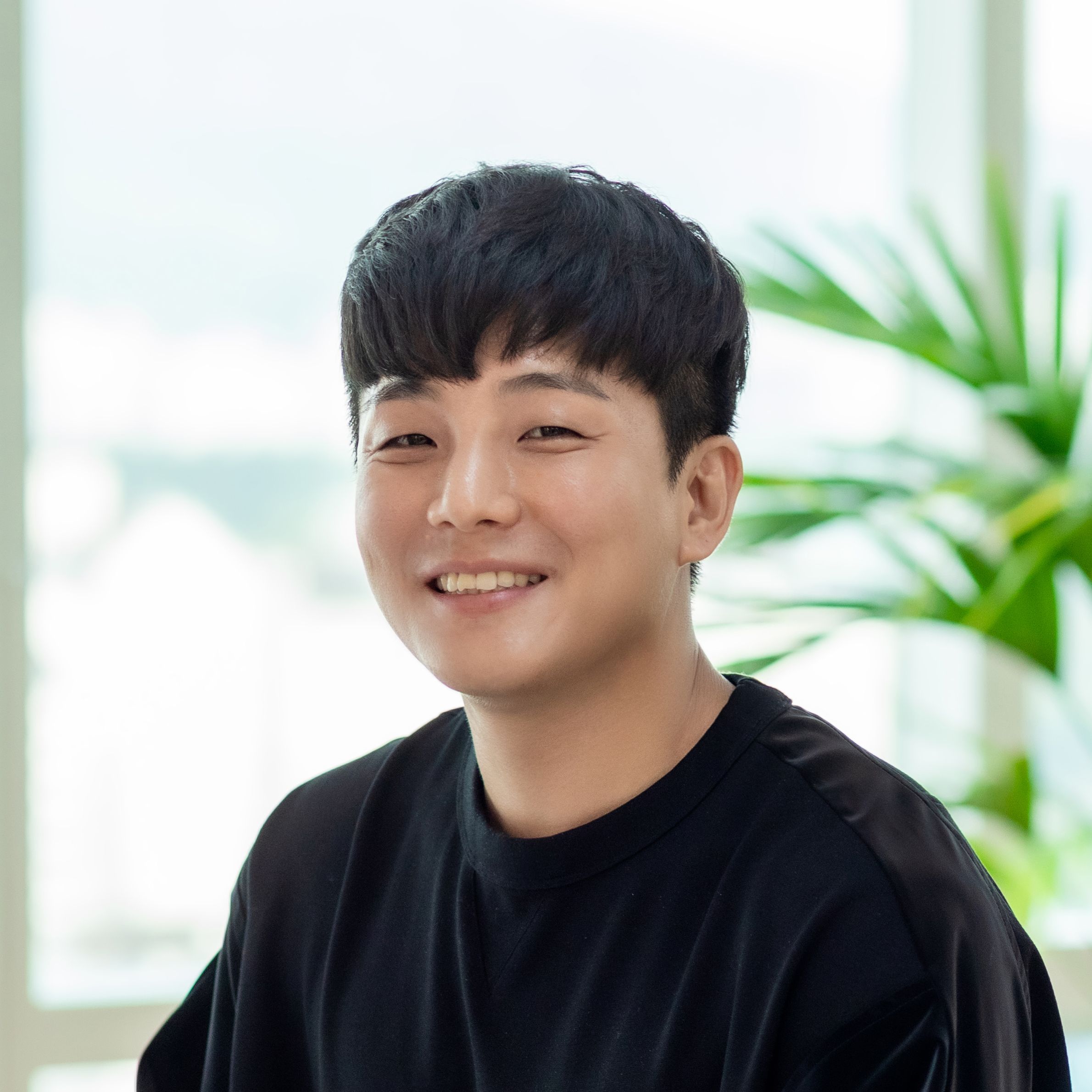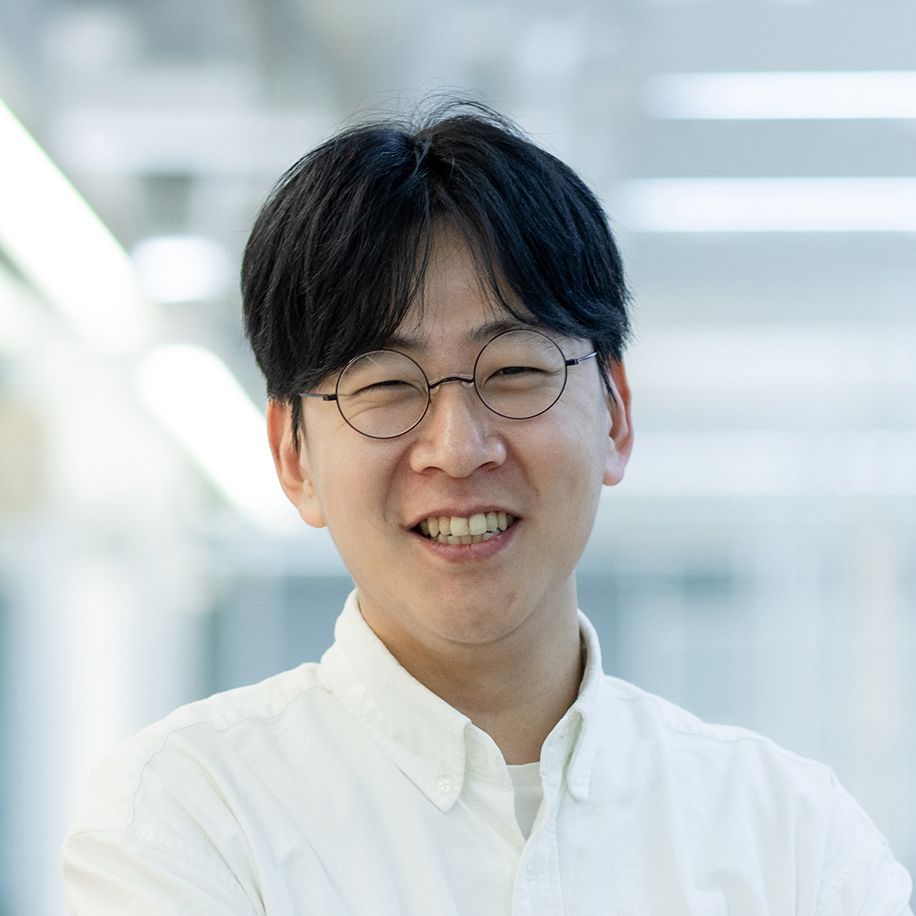Meet the Global LINERs
Engineering
Hongkun Yoo / Data Engineering / LINE Plus
Even though Hongkun wanted to joined LINE to experience an environment where software comes first, when he received an invitation to come in for an interview, his initial reaction was stress. But despite those nerves, his expertise and passion for data platforms and Kubernetes shone through during the interview. Let’s talk to Hongkun to get his insights on data engineering and some stories about the LINE data platform.
A quick three-line summary
- Hongkun develops and operates an in-house data platform based on Kubernetes.
- He constantly considers users�’ needs to improve the platform.
- Learning and implementing new technologies has enabled Hongkun to really drive his career growth.

About Work
Q Please introduce LINE's Data Platform Dev Team and your responsibilities.
As the name suggests, Data Platform Dev is responsible for developing our in-house data platform. We manage open-source data platform products like Notebook solutions, Workflow engines, and Query engines on a container orchestration system called Kubernetes, making them easily accessible for data analysts and data scientists. Currently, I'm working on integrating a third-party Notebook solution called Datalore from JetBrains into Kubernetes and making Apache Spark easy to use on Kubernetes. Not only do we integrate commercial solutions, but we also develop and operate an API server that can create and delete various data solutions on Kubernetes. Simply put, we're developing an API server that provides a Platform as a Service (PaaS). While most data platforms are based on Hadoop, much of that is handled by our colleagues in Japan. Our team specifically handles the development of a Kubernetes-based data platform. We're constantly thinking of new data solutions that we can provide based on Kubernetes.
Q What’s your usual work schedule like?
I usually work from home and need to start my day with a coffee. It's a must for me (laughs). Then, I manually write my to-do list on A4-sized paper. I like managing my schedule and to-do list by hand. It helps me visualize the bigger picture of my tasks and prioritize them. For instance, while waiting for a Docker build, I can work on other outstanding tasks. I strive to maintain a steady workflow. In terms of collaboration, we have weekly meetings tailored to our work. We discuss Notebook solutions on Mondays and Kubernetes operations on Tuesdays. Once a week, I also have lunch with my team members at the office, where we discuss things that we couldn't fully cover in online meetings and we share some stories. I believe my work is well balanced between individual tasks and collaborative tasks.
Q Do you have any memorable achievements?
My first task at LINE was developing a component to check the status of GPU devices running on a Kubernetes cluster. GPU devices often encounter issues due to continuous usage for machine learning. However, it was nearly impossible to check each one due to their sheer number. To solve this, I built an automated process that checks the GPU status and sends alerts when issues arise. This involved creating a program using NVIDIA Data Center GPU Manager's library and deploying it on all GPU servers. Shortly after applying the automated process, we were able to identify a problematic GPU device. Although it was a simple task, it was my first success at LINE, so it's quite memorable (laughs).

Thoughts on competencies
Q What competencies and qualities do you believe are necessary for delivering excellent performance in your role?
The ability to constantly learn and execute quickly! Understanding users' needs and quickly adapting to new technologies is crucial. Technology trends change at a rapid pace, and new technologies are always emerging. Kubernetes is also a relatively new technology. On our team, many enjoy subscribing to tech newsletters or blogs and participating in various community activities to stay updated. We share the knowledge gained within the team and discuss how it can be applied to our work. We even have a “Tech Kubernetes” Slack channel for our team where we share Kubernetes-related articles via RSS. Continually studying and thinking about application methods positively impacts not only individual performance but also team outcomes.
Q What do you consider most important as a Data Platform Engineer?
User-centric thinking is crucial. The services I develop target internal users. Understanding what users want to use and how they want to use it is important. If we create a heavy tool when the user wanted a light one, no one will use it, even if it's well made, because it's not what was desired. Every moment is a process of finding user needs. To do this, we visualize usage data and conduct focus group interviews.

Challenges and Failures
Q They say we learn more from our failures than our successes. Tell us about one or two of your failures.
This is related to the user-centric thinking I just mentioned. I had a challenging experience while working on Datalore for Kubernetes. With Datalore, to use data from Hadoop, we needed to use Spark operating on YARN, which can run in both client and cluster modes. However, communications in client mode wasn't smooth due to an error caused by the overlay network of Kubernetes. In contrast, cluster mode worked well without communication issues, so we guided users to use only this mode. But as we continued operating, we realized users weren't using Datalore much. Upon investigation, most users needed interactive Spark support using client mode. This was an issue caused by not fully understanding user requirements. After discovering this, we actively sought ways to run Spark without errors in client mode and managed to support it using Spark on Kubernetes technology. This was a good reminder of the importance of user-centric thinking.
Q Has there been a particular situation or turning point where you feel you grew significantly through your experience at LINE?
I think I'm growing through LINE's overall development environment. I've operated Kubernetes clusters at my previous job, but the experience at LINE is definitely different. First, the scale of server operation is different. You can experience a scale that you can't easily see in other companies. In fact, it's about hundreds of times different (laughs). Moreover, the scale we have to operate is continually growing. The knowledge I gain from directly experiencing various problems and disaster responses, and understanding what components are important and what tasks need caution during system outages, all contribute to my growth. One of the reasons I joined LINE was to experience various technologies using Kubernetes, and I'm proud to be realizing that.
Q What does the word “challenge” mean to you?
It might sound cliché, but I would define it as “the courage to not fear failure”. If you fear failure, you can't even start. LINE provides a cultural environment that allows employees to take on various challenges. It guarantees individual autonomy and has a culture that doesn't point fingers at failure. Because the company gives a sense of trust to its employees, it's easier to muster “the courage to not fear failure”, which naturally leads to individual growth.

Special experiences at LINE
Q Please tell us about the colleagues that you work with at LINE.
Our team officially was formed about two years ago, after operating as a task force. It's a vibrant and passionate group that respects diverse opinions and is very open to incorporating them into practice. The culture is supportive, which helped me quickly adapt after joining.
Q Apart from work, what do you find the most enjoyable?
When we first launched our in-house data platform, we thought we needed a logo. Everyone submitted their designs, and we selected the logo through a team vote. Some used cartoon characters, while others made it very simple. It was fun to see everyone's diverse ideas (laughs). Although my logo wasn't chosen, it was a fun experience that reinforced the feeling of creating a service with my own hands.
Q Is there any benefit or cultural aspect at LINE that you think is particularly notable?
There are plenty of excellent references for work, meaning both materials and colleagues. I can refer to coding resources on our internal GitHub Enterprise or gain insights on key considerations for platform development through our Confluence. Also, many of my colleagues are technically proficient, so I often learn a lot through conversations. I like the saying, "Standing on the shoulders of giants." I appreciate being able to broaden my perspective and grow through robust materials and skilled colleagues at LINE. From a work system perspective, I'm satisfied with LINE Hybrid Work. As long as the team's ground rules are followed, it's easy to balance personal life and work. The company's granting of autonomy to its members and support for a suitable work environment also are big plusses.

Wrap-up
Q Do you have any goals you personally want to achieve at LINE?
Ultimately, I want to make a significant impact on LINE's business. I aim to secure more internal users and create services that can uncover the value and insights of data. Personally, I aim to grow as a Kubernetes expert by providing and managing more services from a Kubernetes perspective. Although the birth of my child has slightly shifted my priorities, I also have a desire to actively operate my personal tech blog, which I've been running for some time.
Q Any message for those interested in this position?
I believe LINE offers the experience of handling data and Kubernetes clusters on a larger scale than anywhere else. If you're looking to achieve a unique career path, check out our job postings (Data Platform Kubernetes Engineer) right now!
Q Curious about where your professional journey could take you next?
Check out the career opportunities on our Jobs page! - Data Platform Engineer




